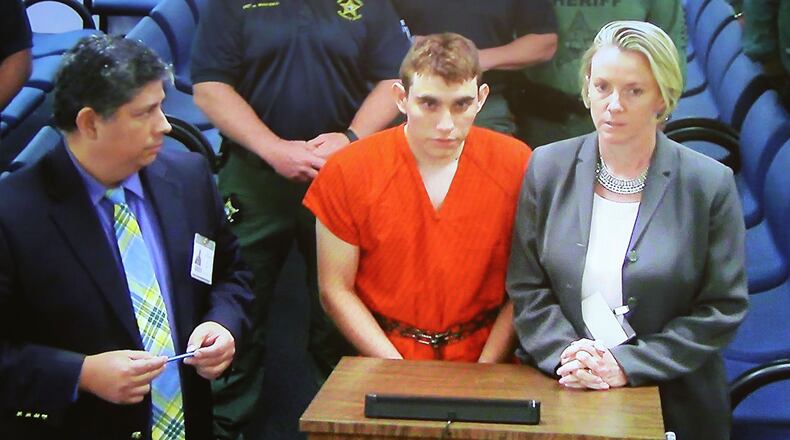The U.S. Secret Service is urging schools to establish teams that can assess students who might be a threat to their school, hoping to prevent shootings such as the massacre at Marjory Stoneman Douglas High School in Parkland, Florida, that left 17 people dead.
In the report released Thursday, the Secret Service urged schools to establish "threat assessment teams" comprised of teachers, coaches, mental health authorities, law enforcement and others who work in the schools.
The teams would flag troubling student behavior, including threatening posts on social media and bullying, according to the report. They would also look for signs of drug use, withdrawal from classmates, relationship problems and absenteeism, in addition to a student's access to weapons.
"The threshold for intervention should be relatively low so that teams can identify students in distress before their behavior escalates to the point that classmates, teachers, or parents are concerned about their safety or the safety of others," the report said.
Under the guidelines, team members would be allowed to look through a student’s social media, interview teachers and classmates, assess their school work and search a student’s locker, or desk.
The team would be tasked with looking at the student’s overall life -- their interest in violence, family history and relationships -- in order to gauge their likelihood of planning an attack.
The team would then work with the family and law enforcement to monitor each case.
This strategy should not just apply to current students, the Secret Service said.
“Removing a student from school does not eliminate the risk to the school community,” the report stated. “A suspended or expelled student might become isolated from positive peer interactions or supportive adult relationships at school. Teams should develop strategies to stay connected to the suspended or expelled student to determine whether the student’s situation is deteriorating or the behaviors of concern are escalating so that they can respond appropriately.”
In the Parkland case, 19-year-old Nikolas Cruz, the suspected gunman in the case, showed signs of mental illness and a heightened risk of violence before the attack on Marjory Stoneman Douglas High School, police said.
He had recently been expelled and posted online threats against the school before the attack.
Cruz is charged with 17 counts of murder.
Prosecutors in Broward County are seeking the death penalty.
Lina Alathari, the chief of the Secret Service's National Threat Assessment Center, told USA Today that out of 227 schools that were surveyed, about 70 percent had formed some sort of threat assessment program.
However, there is no uniform standard for evaluating school threats.
“There are some schools that have nothing,” Alathari said. “It's up to the schools and the (school) districts to allocate resources.”
In the report, Secret Service director Randolph “Tex” Alles warned there is no official profile of an attacker and most do not fit a common profile.
“These acts of violence were committed by students who were loners and socially isolated, and those who were well-liked and popular,” Alles said in the report. “Rather than focusing solely on a student’s personality traits or school performance, we can learn much more about a student’s risk for violence by working through the threat assessment process.”
About the Author
The Latest
Featured


